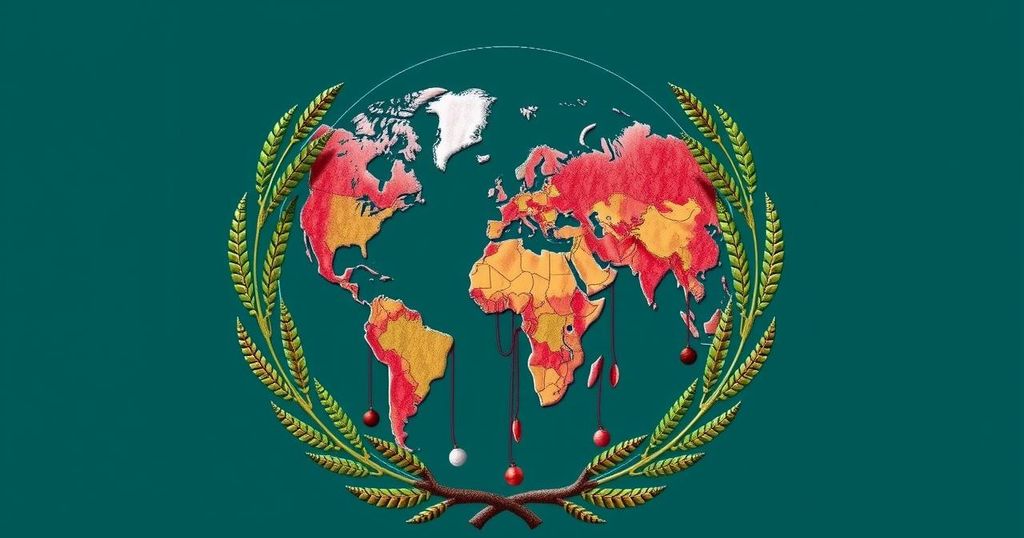Nations rejected a vague draft deal at COP29, stressing the urgency for specific financial commitments from wealthy countries to aid developing nations in the face of climate change. Activists highlight the pressing need for clarity on financing, pivotal for transitioning to clean energy and adapting to climate impacts.
At the COP29 UN Climate Summit held in Baku, Azerbaijan, nations expressed collective disapproval of a vague draft deal intended to facilitate climate financing for developing countries. The draft notably omitted key figures regarding financial contributions from wealthier nations, identified only as a placeholder “X.” This lack of clarity has stirred disappointment and concern among delegations, as the developing world asserts a need for $1.3 trillion in climate finance to transition to clean energy and mitigate climate impacts. There is widespread frustration, particularly voiced by representatives from Colombia and Panama, emphasizing the urgency of solid financial commitments to support vulnerable regions worldwide.
Moreover, the discussions have faced additional criticism for their perceived deficiencies in addressing fossil fuel reduction commitments necessary for mitigating climate change. Delegates from Europe and the United States highlighted the absence of progress in reiterating previously agreed-upon targets to decrease greenhouse gas emissions, invoking concerns over the global commitment to limit warming as established in the Paris Agreement. As negotiations unfold, there remains a pressing need for quantifiable proposals that reflect the realities faced by those most affected by climate change.
The urgency for climate action and financial support for developing countries has been a central theme in global climate negotiations, particularly at conferences such as COP29. The need for substantial investments in transitioning from fossil fuels to sustainable energy and for adapting to the adverse effects of climate change is highlighted by countries in the Global South. The ongoing discussions at the UN climate talks revolve around securing commitments from affluent nations to fund initiatives that will bolster resilience against climate impacts and facilitate sustainable development. As part of these negotiations, the expectations around financing have escalated given the pressing realities of climate change, thereby underscoring the importance of binding commitments and transparency from wealthier nations to address these vulnerabilities.
The COP29 UN Climate Summit has underscored significant discord regarding financial commitments aimed at aiding developing countries in their climate adaptation and clean energy transitions. The rejection of the vague draft deal highlights the urgent need for richer nations to provide clear, actionable financial proposals. As the clock ticks on these crucial negotiations, achieving a balanced, transparent, and quantifiable financial framework is essential to ensure that vulnerable nations receive the support needed to combat climate change effectively.
Original Source: apnews.com







